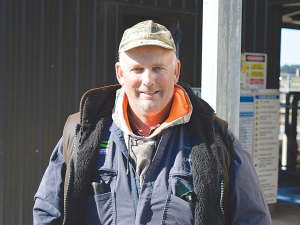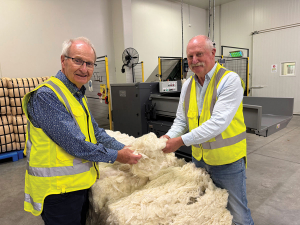He says being an accredited employer with INZ isn't helping dairy farmers secure visas for overseas workers. He says the scheme is "almost farcical".
"Farmers pay to become accredited employers, it's a time-tested process, farmers must have a long history of being good employers and keep good records," Lewis told Rural News.
"But it's still taking us four to five months to get a visa for overseas workers."
It also costs employees around $740 per visa application, plus the cost of hiring and lost productivity from being a person down. Lewis questions whether it would take INZ four months to verify documentation.
"With all the money they get for each visa application, they can easily hire extra staff and set up a dedicated team to quickly go through a four-page visa application."
Lewis is in the process of hiring two extra workers from the Philippines. They are related to two long-serving migrant workers on his farm. One has got a visa and is now working on the farm.
He has gone through the INZ process of advertising for the job in NZ. But he points out that the application has been with INZ for three to four months.
Lewis, who was Federated Farmers immigration spokesman and dairy group chair, says the process was always tedious under previous governments as well.
But being an accredited employer has brought little benefit.
Lewis has dealth with Immigration Ministers for many years on the issue of visas for migrant dairy workers.
He says while all ministers showed the right intent, they could do little to improve the operational side of INZ.
"The ministers, including the current one, have great intent and always listened to our grievances, but the department has failed to lift its performance."
According to Federated Farmers, the dairy sector needs up to 1,000 workers for calving season, which started this month in the North Island.
Lewis points out that post Covid the dairy sector needed 3,000 migrant workers but with business costs tight and interest rates high, farmers are not hiring as many staff.
There are also more Kiwi workers available as construction and roading projects have dialled back due to economic issues.
On his farm, Lewis says 20% of the herd has calved. Lewis and his wife have been working full time and his son helped during the school holidays.
"That extra help we got during the school holidays is now gone, so farmers will be relying on Kiwi workers and migrant workers to get through calving," he says.
Rural News contacted Immigration NZ for a comment, however they couldn’t meet our print deadline. INZ’s comments are below.
INZ 'very aware' of dairy sector staff woes
Immigration New Zealand director visa Sarah Clifford says they appreciate that waiting on visa applications to be processed can be stressful.
Clifford says they are also “very aware” of the workforce pressures the dairy sector is currently facing.
“We are engaging with Federated Farmers regarding this situation,” she told Rural News.
She points out that changes to the Accredited Employer Work Visa (AEWV) scheme were announced in April 2024. These included introducing an English language requirement for migrants applying for lower skilled roles, a minimum skills and work experience threshold for most AEWV roles, a requirement for employers to advertise for longer and engage with Work and Income before approval to bring in migrants will be granted for low skilled roles and reducing the period a migrant worker can stay in New Zealand continuously (or maximum continuous stay) for most of these roles from five years to three years.
In May, the Government made a one-off, temporary change to reduce the Job Check advertising requirement for ANZSCO level 5 dairy cattle farm roles. For job check applications submitted before 14 July 2024, employers only needed to advertise these roles for 14 days nationally, instead of 21 days, and engage with Work and Income.
“Since then, we have prioritised the allocation of Job Check and AEWV applications for dairy workers, and will continue to do so until 1 August 2024 at this time,” says Clifford.
Dairy sector applications are currently being managed closely and dedicated staff trained in the dairy sector are processing these applications.
For the period 1 May and 24 July 2024, the average processing time for job checks for the dairy sector is 16 working days. For AEWV level 1-3 roles, it is 25 working days and for level 4-5 roles it is 35 working days.
Clifford says the processing time of an application depends on various factors such as the completeness of an application, any additional information required, and the level of verification required including third party checks.
“A high number of applications are not being submitted with all the required documents meaning they are taking longer to decide. A checklist has been provided to the dairy sector to help them to submit more complete applications.”
More information on AEWV is available on the INZ News Centre: Accredited Employer Work Visa (AEWV) | Immigration New Zealand.



















